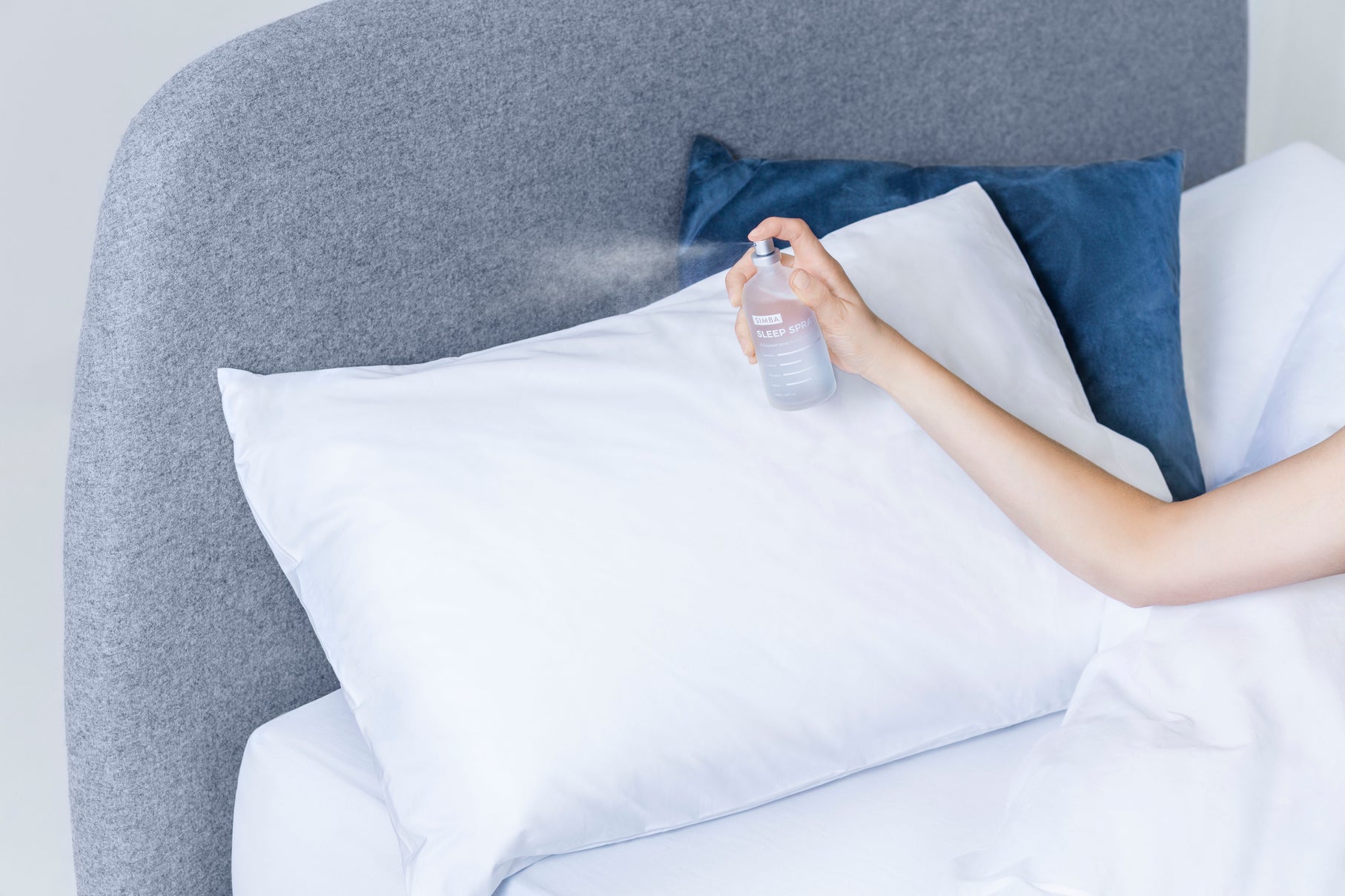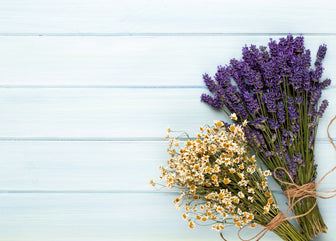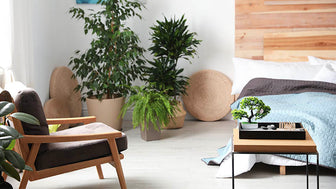Essential oils for sleep
Did you know that you can use scents to help you sleep? If you’re looking for ways to get a better night’s shuteye, putting the principles of aromatherapy into practice could hold the key. Our resident sleep psychologist and mindfulness expert, Hope Bastine, reveals the scientific principles behind essential oils for sleep, and how to incorporate scents like the Simba Sleep Spray into your bedtime routine.
What does aromatherapy mean?
‘Aromatherapy’ quite literally means ‘treatment by way of fragrance’. It is the use of plant-derived aromatic essential oils to cure psychological and physical ailments. Essential oils extracted from herbs, flowers, leaves, fruits, roots, and resin have a high refractive index making their concentrated, potent effects remarkable when applied topically or simply inhaled.
There’s no evidence that they are addictive, they maintain their potency over time but do not over stimulate, and they don’t have the side effects associated with taking a medication-based approach to tackling sleep issues, all of which make them a great place to start your journey to better sleep. Plus, research shows that aromatherapy is effective in maintaining sleep - especially in the face of stress and anxiety!
The science behind sleep aromatherapy
It’s a little complicated, but in a nutshell, essential oils may prompt the brain to release hormones and neurotransmitters that help us to sleep. Here’s how it works:
1. The olfactory bulb, located in the brain behind the eyes, has nerves that spread throughout the nasal passage and the inner brain. When inhaled, the essential oil integrates with the biological signals of the receptor sites in the olfactory nerves in the nasal passage.
2. The nerves meet at the olfactory bulb, which then relays the sensory information deep into the inner brain centre called the limbic system.
3. The limbic system is the house of human emotional responses as well as our inner drives, motivation, learning, and memory.
4. Within the limbic system is the hypothalamus which, as well as being particularly affected by aromas, controls the endocrine system and autonomic nervous system – processes that control and interpret hormones and non-conscious processes such as breathing, and heart rate.
5. The hypothalamus tells the brain to release hormones and neurotransmitters such as dopamine, serotonin, endorphin, or noradrenaline that cause us to behave in certain ways.
All of which means that the science of aromatherapy allows us to trigger certain feelings and behaviours that we want – including sleepiness and calm. To feel the benefit, all you have to do is to select the right essential oils for sleep.
How do essential oils help you sleep?
Our sense of smell is the most evocative of all the senses. Our brain is so good at making connections that certain scents immediately send us down memory lane and we begin to feel the emotions we have associated with that memory. Since emotions cause us to behave in certain ways, through smell we can activate the motivation pathway in the brain that will cause us to behave in the way we connect to that specific smell.
What does this mean for getting better sleep? It means we can condition ourselves to associate a scent with sleep by incorporating it into our pre-sleep ritual.
This works in a two-fold way: the properties of the essential oils you’ve chosen have the desired calming physiological impact on the mind and body, and you will be creating a healthy conditioned memory trigger of a sound night’s sleep. The body will do what the mind tells it to do!
Safely using essential oils
Essential oils in the purest form are strongly concentrated, and direct contact can irritate your skin. You have three options for using them safely:
1. Choose a readymade spray containing a small concentration of the oil/s, and use it to spritz your pillow or your room before bed.
2. Put a couple of drops of your chosen oil into a candle-warmed oil burner, available online or from most homeware shops - just remember not to leave it unattended.
3. Put a couple of drops on a handkerchief or tissue, and lay it on your bedside table.
What are the best scents for sleep?
You have lots of options when it comes to sleep-inducing scents, depending on what would benefit you most (although you can also go for a combination, of course). These are some of the most popular.
Lavender to help you sleep
In 2013, one study used lavender essential oil as the key ingredient for reducing anxiety and improving sleep quality from a sleep score of 36.2 to 52.7 in pre-op patients who were too anxious to sleep. The research continuously shows that lavender suppresses heart stimulation and lowers blood pressure!
The same researchers discovered that the lavender had no effect on their heart rate. This makes the use of lavender essence extremely safe to use, as it does not lower an already resting heart rate. Unlike synthetic medication, you can rest assured your heart rate will not fall below the safe zone during your sleep.
Choose citrus oils for anxiety
As well as triggering feelings of sleepiness, some essential oils could help combat stress and anxiety - two of the biggest enemies of sleep. Choosing oils that combat these feelings can also help you have a restful night. The best ones are:
- Orange
- Lemon
- Mandarin
- Sage (not a citrus, but just as good)
Countless studies on men, women and children show that within 15 minutes of inhaling these oils, serotonin and dopamine levels are elevated and cortisol - the bad stress hormone - is reduced. Not only will you feel calm and at ease within yourself, but you will also associate a happy feeling with your bed when using these essential oils in your pre-sleep ritual – the perfect antidote to bedtime dread!
Using eucalyptus oil for better sleep
One of the major disruptors of sleep is respiratory dysfunction. Research shows that not only does inhaling eucalyptus oil stimulate your immune system, it is also remarkably powerful in facilitating smooth breathing as it clears and opens the breath passages in people with asthma, bronchitis, and chronic obstructive pulmonary disease.
By opening up breathing passages, eucalyptus oil will support the effective diffusion of nutritious molecules needed to support the healing and restoration process that occurs in deep sleep – it will also enhance the rapid diffusion and effectiveness of the lavender, sage and citrus essential oils. Another perk of using eucalyptus oil in your sleep ritual is the pain relief effect it can have – tackling yet another enemy of sleep.
Simba’s combination of essential oils for sleep
Once we knew all of the above, we realised it was time to create the ideal combination of essential oils for sleeping. After, getting a good night’s shuteye is our number one mission!
The Simba Sleep Spray is a unique distillation of 100% essential oils. The active ingredients are:
- French Lavandin
- English Lavender
- Orange
- Lemon
- Eucalyptus
- Mandarin
- Sage
- Amyris
- Patchouli
- Coconut
- Tonka Beans
In Simba’s tests, 78%* of people said 2-3 mists on their pillow gave them a more restful night’s sleep. To use, add 2-3 spritzes to your pillow as you slip into bed. Allow about 15 minutes for this calming fusion to take effect. While you are waiting, you can add other soothing routines such as stretching before bed.
Making scent a part of your sleep ritual could be the soothing technique you’ve been looking for to help with a sleep issue or further improve the quality of your rest. A good night’s sleep is the best health gift you can give yourself, so give it a try today.

















